Filter by
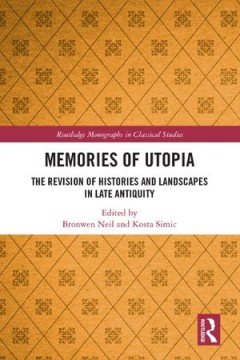
Memories of Utopia
These essays examine how various communities remembered and commemorated their shared past through the lens of utopia and its corollary, dystopia, providing a framework for the reinterpretation of rapidly changing religious, cultural, and political realities of the turbulent period from 300 to 750 CE.The common theme of the chapters is the utopian ideals of religious groups, whether these are i…
- Edition
- Edisi 1
- ISBN/ISSN
- 9780429827907
- Collation
- -
- Series Title
- -
- Call Number
- -
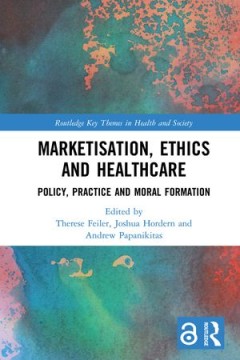
Marketisation, Ethics and Healthcare
How does the market affect and redefine healthcare? The marketisation of Western healthcare systems has now proceeded well into its fourth decade. But the nature and meaning of the phenomenon has become increasingly opaque amidst changing discourses, policies and institutional structures. Moreover, ethics has become focussed on dealing with individual, clinical decisions and neglectful of the p…
- Edition
- Edisi 1
- ISBN/ISSN
- 9781351736855
- Collation
- -
- Series Title
- -
- Call Number
- -
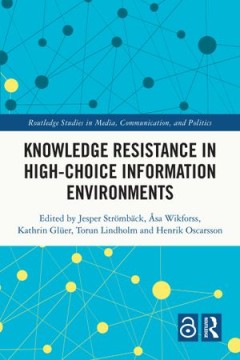
Knowledge Resistance in High-Choice Information Environments
This book offers a truly interdisciplinary exploration of our patterns of engagement with politics, news, and information in current high-choice information environments. Putting forth the notion that high-choice information environments may contribute to increasing misperceptions and knowledge resistance rather than greater public knowledge, the book offers insights into the processes that inf…
- Edition
- Edisi 1
- ISBN/ISSN
- 9781000599169
- Collation
- -
- Series Title
- -
- Call Number
- -

Kierkegaard, Mimesis, and Modernity
This book challenges the widespread view of Kierkegaard’s idiosyncratic and predominantly religious position on mimesis.Taking mimesis as a crucial conceptual point of reference in reading Kierkegaard, this book offers a nuanced understanding of the relation between aesthetics and religion in his thought. Kaftanski shows how Kierkegaard's dialectical-existential reading of mimesis interlaces …
- Edition
- Edisi 1
- ISBN/ISSN
- 9781000480603
- Collation
- -
- Series Title
- -
- Call Number
- -
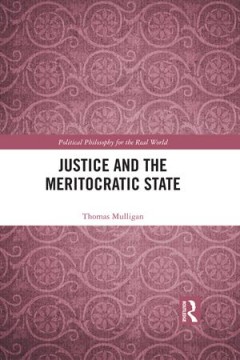
Justice and the Meritocratic State
Like American politics, the academic debate over justice is polarized, with almost all theories of justice falling within one of two traditions: egalitarianism and libertarianism. This book provides an alternative to the partisan standoff by focusing not on equality or liberty, but on the idea that we should give people the things that they deserve. Mulligan sets forth a theory of economic j…
- Edition
- -
- ISBN/ISSN
- 9781351980760
- Collation
- -
- Series Title
- -
- Call Number
- -
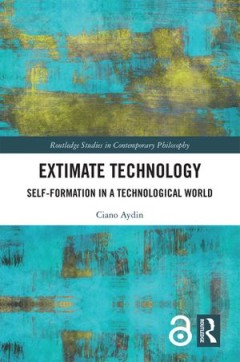
Extimate Technology
This book investigates how we should form ourselves in a world saturated with technologies that are profoundly intruding in the very fabric of our selfhood. New and emerging technologies, such as smart technological environments, imaging technologies and smart drugs, are increasingly shaping who and what we are and influencing who we ought to be. How should we adequately understand, evalu…
- Edition
- -
- ISBN/ISSN
- 9781000357967
- Collation
- -
- Series Title
- -
- Call Number
- -
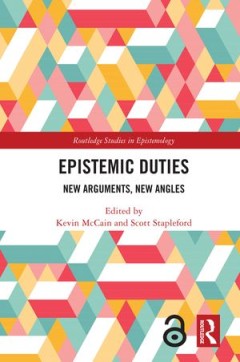
Epistemic Duties
There are arguably moral, legal, and prudential constraints on behavior. But are there epistemic constraints on belief? Are there any requirements arising from intellectual considerations alone? This volume includes original essays written by top epistemologists that address this and closely related questions from a variety of new, sometimes unexpected, angles. It features a wide variety of pos…
- Edition
- Edisi 1
- ISBN/ISSN
- 9780429641794
- Collation
- -
- Series Title
- -
- Call Number
- -
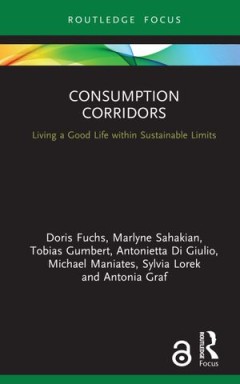
Consumption Corridors
Consumption Corridors: Living a Good Life within Sustainable Limits explores how to enhance peoples’ chances to live a good life in a world of ecological and social limits. Rejecting familiar recitations of problems of ecological decline and planetary boundaries, this compact book instead offers a spirited explication of what everyone desires: a good life. Fundamental concepts of the good …
- Edition
- -
- ISBN/ISSN
- 9781000389463
- Collation
- -
- Series Title
- -
- Call Number
- -

Beyond Autonomy in Eighteenth-Century British and German Aesthetics
This volume re-examines traditional interpretations of the rise of modern aesthetics in eighteenth-century Britain and Germany. It provides a new account that connects aesthetic experience with morality, science, and political society. In doing so, it challenges long-standing teleological narratives that emphasize disinterestedness and the separation of aesthetics from moral, cognitive, and pol…
- Edition
- Edisi 1
- ISBN/ISSN
- 9781000077247
- Collation
- -
- Series Title
- -
- Call Number
- -
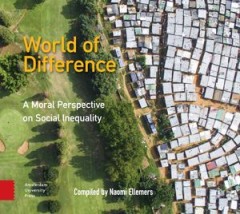
World of Difference
Public debates tend to see social inequality as resulting from individual decisions people make, for instance with respect to their education or lifestyle. Solutions are often sought in supporting individuals to make better choices. This neglects the importance of social groups and communities in determining individual outcomes. A moral perspective on social inequality questions the fairness of…
- Edition
- -
- ISBN/ISSN
- 9789048534548
- Collation
- -
- Series Title
- -
- Call Number
- -
 Computer Science, Information & General Works
Computer Science, Information & General Works  Philosophy & Psychology
Philosophy & Psychology  Religion
Religion  Social Sciences
Social Sciences  Language
Language  Pure Science
Pure Science  Applied Sciences
Applied Sciences  Art & Recreation
Art & Recreation  Literature
Literature  History & Geography
History & Geography